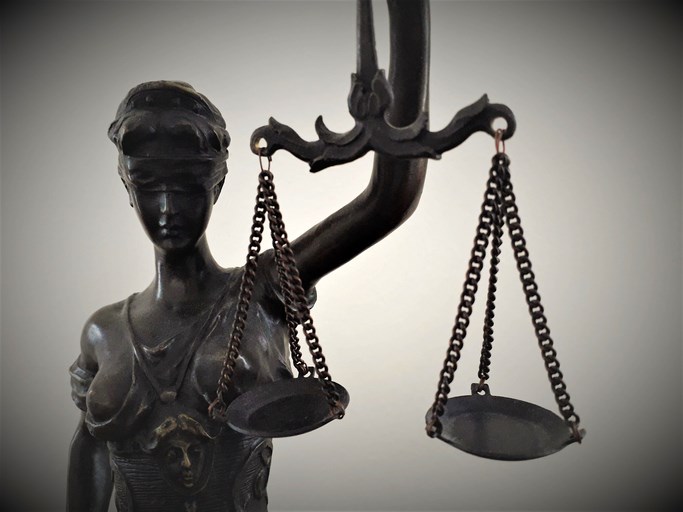For seven years, Jody Vance’s world was turned upside down, inside out, scrambled, stalked, shattered and scarred.
For merely the next year, the man who sent hundreds of vile and sexualized messages to her and her friends, colleagues and the wider world will have to simply refrain from doing it.
To Vance and the four others who shouldered the repeated attacks, this brief break from the barrage is, in a nutshell, what constitutes justice today.
Vance is commonly called a “respected” journalist, but it stretches credulity to suggest the public uniformly treats journalists as “respected” any longer. It is not an exaggeration to say that most every newsroom today experiences in forms small and large what Vance has borne: Anger, menace and intimidation in place of recognition, much less appreciation, of the role journalists play as the public surrogate in pursuit of truth. The pandemic amplified this animus in magnitudes.
Vance’s lengthy nightmare involved hundreds of derogatory comments on websites, manipulated images depicting her and her young son as concentration camp prisoners deserving of punishment, an inserted Communist symbol across the mask she wore in the pandemic, and spineless misogyny she chose to confront in the courts.
The attacks started in 2015. When the vitriol spilled over to her son – he’d be taught to run away if he ever saw the source of the emails – Vance chose in 2019 to report the matter to authorities. It took a year to start the file, another year for the arrest, another 18 months to arrive in court. As she did so, she repeatedly heard the same line of encouragement tinged with cynicism: “Good luck with that.”
About a week ago, she learned a hard lesson from the justice system’s verdict. The criminal must keep his mouth and mind shut to Vance, sa国际传媒 Research Chair Jason Kindrachuk, CBC’s Marcella Bernardo, Global News’ Keith Baldrey and freelance journalist Jesse Miller for the next year. Once the year is done, the sentence is done.
The arrival of technology to permit anyone, anywhere to see most anything, anytime brought with it the ability for anyone, anywhere to say most anything, anytime. Journalism sanctioned some of this by permitting public comments on stories and proclaiming the dawn of an era of greater public participation in them. It is inarguable that many experts surfaced in this climate to volunteer professional-quality observations to elevate standards, just as it is inarguable that charlatans and cons grabbed attention in the algorithm that raced to the bottom and served as a feedback loop of validation for the online audience.
But where disagreements were once typically challenged civilly in media, where mistakes were typically forgiven as an accepted norm for a hectic craft, the public responses in many cases took on a lurid creepiness of visceral spitefulness assisted in many cases by anonymity and the absence of accountability. The arrival of social media, particularly the identity-hiding platforms, hastened free shots of casual hostility and has sadly conditioned mostly indifference or insensitivity about these emotions run amok. If the public has cared about this, it hasn’t shown it.
Pioneering internet entrepreneur Andrew Keen termed the environment early on as “the cult of the amateur,” the diminution of the traditional forms of cognitive authority. Technology granted us access to great thinkers but also gave undeserving people a pedestal and unhinged people a platform. The scariest line I heard in the pandemic: “I’ve done my own research.”
In Vance’s case, it isn’t clear what she said or did to prompt Richard Oliver to do what he said and did. He disagreed with her take on the pandemic and vaccines. His lawyer defended this as a response to the “imbalance” conferred on media to discuss issues, who “then are upset when they are responded to.”
Given his turn in court to speak, Oliver said he disagreed with Vance’s opinions, apologized and said he would use “a more civilized form of disclosure in future.” He wasn’t done, though, turning to recite Romans 2:5, defiantly directing himself to his victim: “But because of your stubbornness and your unrepentant heart, you are storing up wrath against yourself for the day of God’s wrath, when his righteous judgment will be revealed.”
Nor is it clear beyond Vance’s case why anyone would think there is agency or reason to harass Governor General Mary Simon with racism or laid-off Global News reporter Rachel Gilmore with sexism, but the comments I’ve read are chilling – and often cloaked in concealed identities. Simon wishes we could have a national conversation on these issues of online foment, but I doubt the right people would be around the table. The abusers would stay home; they know all too well the genie is out of the bottle, granting their wishes, and cannot be put back. There is no talking to them.
A former judge asked me last week what I’d do about this. I have no answer, I cannot see how we roll back the odometer on the trip we’ve taken, but I hope others do.
Certainly, media need to tell the segment of society still supporting them what they’re enduring, but how effective would that be? Stronger restrictions and penalties and an imposition of responsibilities on the dark corners of the internet certainly seem in order, but how effective would they be? sa国际传媒 Premier David Eby spoke out in support of Vance – on, of all places, Twitter – so perhaps when he catches his breath he can rein this into his stockpile of priorities.
Vance, meanwhile, intends the tribulation to be both cathartic and catalytic to help others. For her part, “I am undeterred.”
Kirk LaPointe is publisher and executive editor of Business in Vancouver and vice-president, editorial, of Glacier Media.


.jpg;w=120;h=80;mode=crop)

